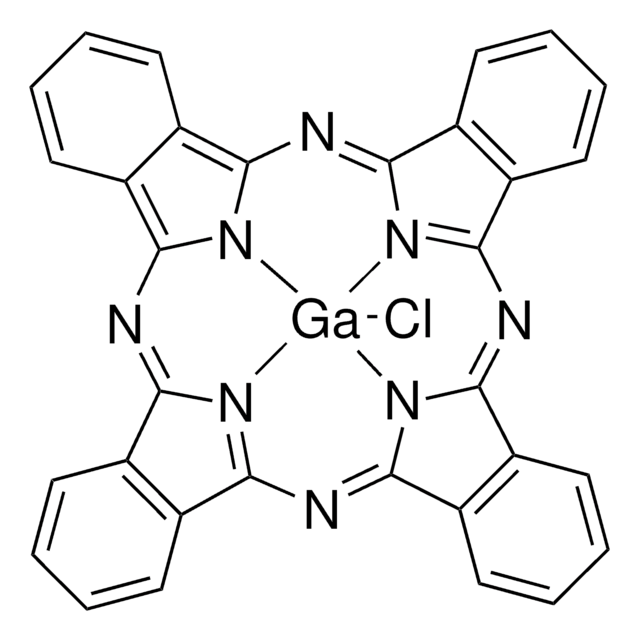393541
Gallium(III) acetylacetonate
99.99% trace metals basis
Synonym(s):
Ga(acac)3, Gallium(III) 2,4-pentanedionate
About This Item
Recommended Products
Quality Level
Assay
99.99% trace metals basis
form
solid
reaction suitability
core: gallium
reagent type: catalyst
mp
196-198 °C (dec.) (lit.)
SMILES string
CC(=O)\C=C(\C)O[Ga](O\C(C)=C/C(C)=O)O\C(C)=C/C(C)=O
InChI
1S/3C5H8O2.Ga/c3*1-4(6)3-5(2)7;/h3*3,6H,1-2H3;/q;;;+3/p-3/b3*4-3-;
InChI key
ZVYYAYJIGYODSD-LNTINUHCSA-K
General description
Application
- As a precursor to synthesize nanocrystalline gallium oxide spinels via solvothermal process for various applications like photocatalysis, battery cathode materials and electrocatalysis.
- To fabricate LiGa alloy layer on Li metal anode from in-situ electroreduction. It suppresses the anode dendrite formation in lithium-sulfur batteries.
- To prepare highly efficient gallium-platinum (GaPt3) nanoparticles hot-solvent synthesis which act as electrocatalysts for hydrogen evolution reaction.
- To synthesize γ-Ga2O3 nanocrystals for fabricating electron-transporting layer for perovskite solar cells. It forms effective interfacial connections with the perovskite top layer, enhancing the efficiency of charge transport.
Signal Word
Warning
Hazard Statements
Precautionary Statements
Hazard Classifications
Acute Tox. 4 Dermal - Acute Tox. 4 Inhalation - Acute Tox. 4 Oral - Carc. 2 - Eye Irrit. 2 - Skin Irrit. 2 - STOT SE 3
Target Organs
Respiratory system
Storage Class Code
11 - Combustible Solids
WGK
WGK 3
Flash Point(F)
Not applicable
Flash Point(C)
Not applicable
Personal Protective Equipment
Choose from one of the most recent versions:
Already Own This Product?
Find documentation for the products that you have recently purchased in the Document Library.
Customers Also Viewed
Articles
Continuous efficiency improvements in photovoltaic devices result from material advancements and manufacturing innovation.
Continuous efficiency improvements in photovoltaic devices result from material advancements and manufacturing innovation.
Continuous efficiency improvements in photovoltaic devices result from material advancements and manufacturing innovation.
Continuous efficiency improvements in photovoltaic devices result from material advancements and manufacturing innovation.
Our team of scientists has experience in all areas of research including Life Science, Material Science, Chemical Synthesis, Chromatography, Analytical and many others.
Contact Technical Service












